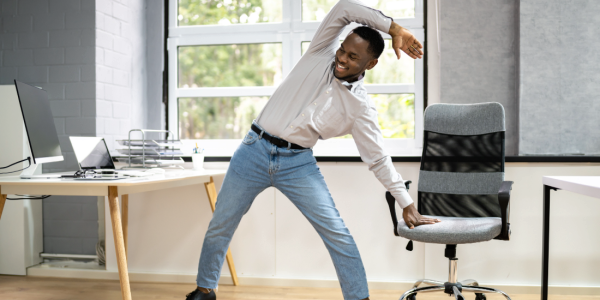
Negative body image has nearly grown to epidemic proportions in the past 20 years, with as many as 60% of adults in national studies saying they don't like the way their bodies look.
Negative body image is an issue that has flown under the radar for too long and now it's time to shed some light on the issue that's hindering so many Americans' self-esteem.
Body image issues are normally targeted to women and the message we're hearing is either "all women need to lose weight" or that the natural aging process is a "disastrous" fate. Women are very sensitive to comments, made from others, about their body. And because of this, positive/negative comments or health advice from friends and family may be interpreted the wrong way.
No one can disagree that women have spent too long worrying about their body image so we urge you to take a stand and love your body again.
Love your body
Mental health and physical health are closely tied together and can exert a significant amount of influence on one another. Mental health can be positively affected by physical health and vice versa.
Changing your body image means changing the way you see your body. Healthy eating, regular exercise and plenty of rest will help you achieve your weight loss goals.
But for right now, focus on feeling proud and taking pride in your workout. Once you do that, you’ll begin to see a true self-esteem boost. Exercise is also a good way to manage stress, which contributes to poor body image.
In fact, developing a more positive body image will improve regardless of how long or how frequently you work out.
Improving body image: it doesn’t matter how long you exercise for, just that you do it
Researchers at the University of Florida reviewed 57 studies that examined the effects of exercise on positive and negative body image. They found that developing a more positive body image was not tied to a particular fitness level or a reduction in weight—body image improved regardless of how long or how frequently the study participants worked out. Experts said this could be because study participants felt like their body image was improving just from exercising.
One thing is for sure, you're not going to improve your body image or lose weight by just sitting there. Even if you feel self conscious at first, regular exercise is one of the best ways to feel better about your body and your health.
Your body image influences your desire to hit the gym
How you feel about your body image will influence your desire to exercise. If you’re feeling down on your body, the best thing you can do is push through your workout.
Don’t think about how you look. Try not to care what others think about your body. Chances are they’re more absorbed with their own body image anyway. So focus on your goals. Working out is providing you an excellent self-esteem boost AND helping to improve your body image. Don't let silly concerns about your body get to you. The gym is your friend, not your enemy.
Body image can impact the type of exercise you do
Those who have poor body image often want to work out alone and don’t enjoy it as much as a gym goer who has a positive body image. Involvement in physical activity is improved if you enjoy what you’re doing. Find some friends who might want to go to the gym with you. They can be your support system and it will make you feel more comfortable and more excited to begin your workout and you’ll get that amazing self-esteem boost from working your muscles.
Some types of workouts are better than others for that little extra oomph.
A little aerobic exercise can give you a nice self-esteem boost
Keep in mind that aerobic exercise has the greatest mood-boosting effects when performed continuously for a prolonged period of time. A study determined that the mood elevating results were based on the release of beta-endorphins, which create that feel-good effect after a workout, commonly referred to as the “runner’s high”.
The mood-elevating effects of various forms of exercise have been supported for both low and moderate intensity workouts. In fact, twenty minutes of exercise with intensities ranging from light to moderate were equally effective in reducing depression and anxiety and providing a self-esteem boost.
Low intensity aerobic exercises, such as mediation, yoga and tai chi have also been found to give a nice little self-esteem boost.






